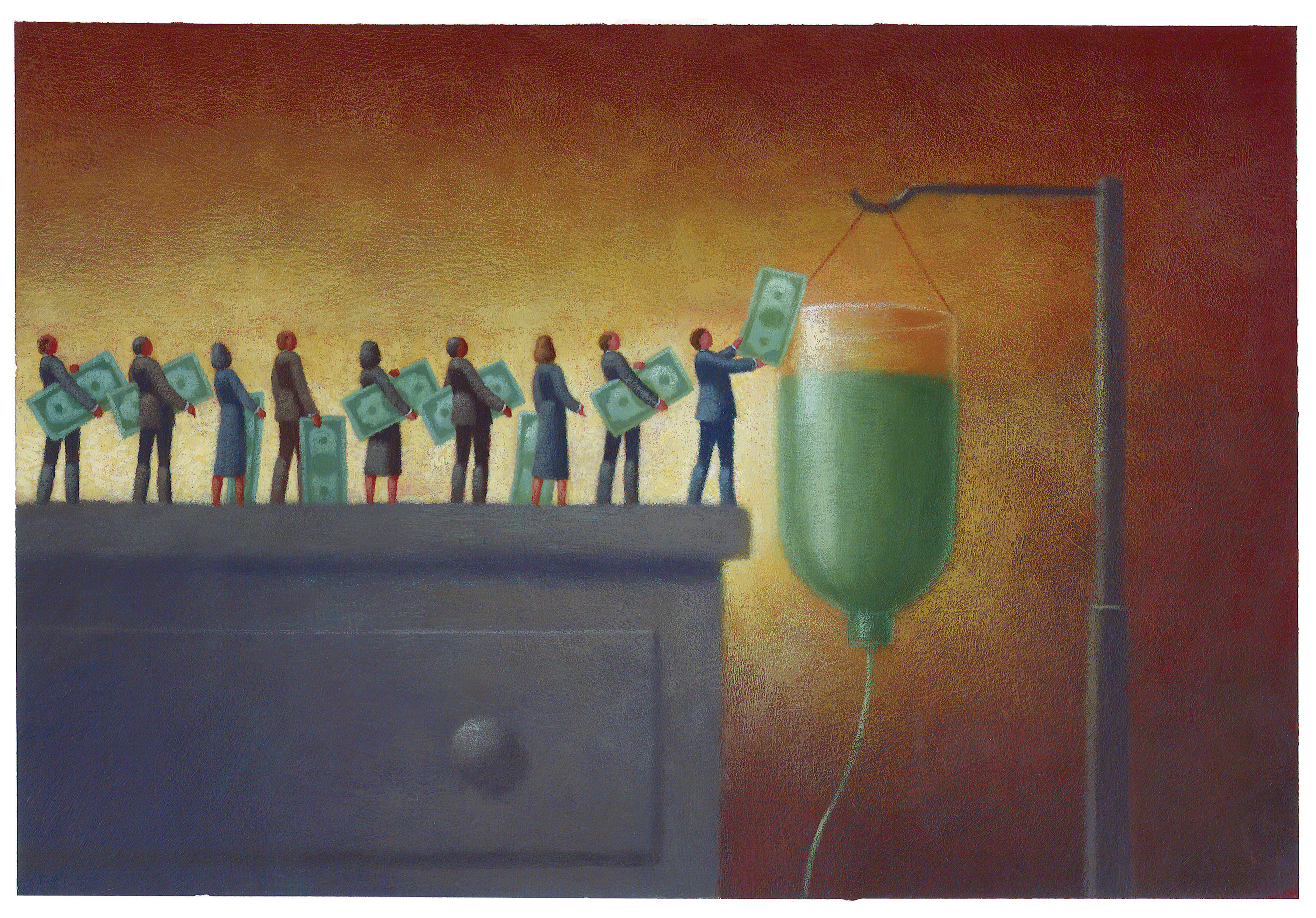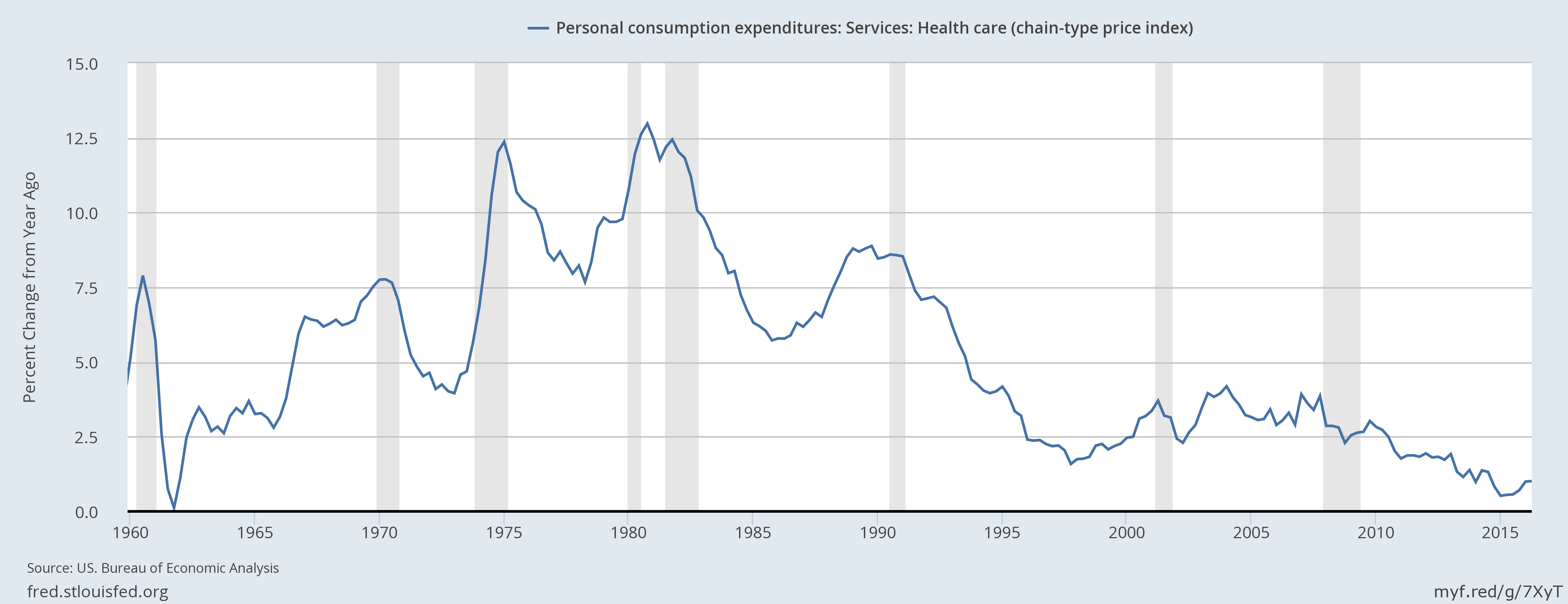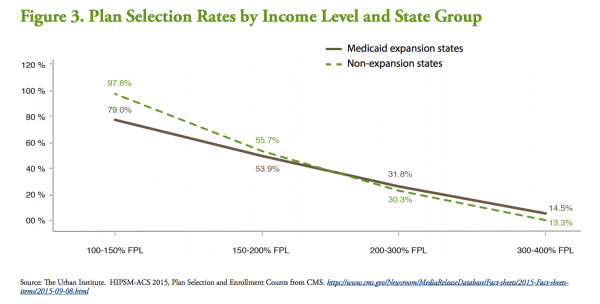ObamaCare needs a massive increase in subsidies. Now.
That's the best way to fix this sputtering law


A free daily email with the biggest news stories of the day – and the best features from TheWeek.com
You are now subscribed
Your newsletter sign-up was successful
Has the reckoning finally come for ObamaCare?
This week, the White House dropped a news bomb by acknowledging insurance premiums on ObamaCare's exchanges will rise 25 percent in 2017. Those escalating premiums are already driving away customers, leading some insurers to pack up and leave the exchanges. As a result, one in five Americans on the exchanges next year will be in markets where only one insurer is offering coverage.
There are two possibilities here: Either this is a one-time, albeit dramatic, course correction by the insurers; or this is the start of the dreaded insurance death spiral.
The Week
Escape your echo chamber. Get the facts behind the news, plus analysis from multiple perspectives.

Sign up for The Week's Free Newsletters
From our morning news briefing to a weekly Good News Newsletter, get the best of The Week delivered directly to your inbox.
From our morning news briefing to a weekly Good News Newsletter, get the best of The Week delivered directly to your inbox.
If it's the latter, policymakers need to crank up the generosity of ObamaCare's subsidies, and do it quick. Given the state of things, taking a "wait and see" approach is a very bad idea.
To explain why requires a brief tour of how we got here. The American health care system has two overlapping problems: First, prices for actual health care services are insanely high compared to other countries. Because insurers have to pay those sky-high prices, they used to control their costs by simply denying a lot of people coverage based on pre-existing conditions, or by foisting the costs onto customers through deductions and co-pays. That gave us America's high pre-ObamaCare uninsured rate, with roughly one-third of Americans simply not bothering to get care because they couldn't pay the costs.
ObamaCare sought to slow the growth in health care prices. That has largely worked: The growth rate is now as slow as it's been in 50 years. In fact, since 2010, inflation in health care prices was no faster than inflation throughout the entire economy.

ObamaCare's second goal was to bring all those uninsured people into the fold, and give everyone access to affordable care. It did this by outlawing denial of coverage based on pre-existing conditions, by mandating everyone buy health insurance, and by giving government subsidies to help people pay for it.
A free daily email with the biggest news stories of the day – and the best features from TheWeek.com
Poorer people and people with pre-existing conditions tend to be sicker than the average population. So forcing insurers to cover them raised insurers' costs of doing business disproportionate to those new customers' numbers. And remember, the whole business model of insurance is premised on the idea that you actually spend little to no money on the vast majority of your customers. So if a higher percentage of those customers suddenly become more expensive, that's a problem. ObamaCare's reforms meant insurers needed to gin up new revenue. That often means raising premiums.
As you can see, there's something of a contradiction here: ObamaCare set out to slow down the growth of the price of health care, while simultaneously embarking on a project that risked raising the price of health insurance. The distinction between these two things is crucial, and it often gets lost or obfuscated in the debate.
ObamaCare tried to avoid raising premiums by instituting an individual mandate that required everyone to purchase insurance: Bring the insurers enough new customers, and they'll get the necessary revenue bump through volume rather than premium hikes. But it didn't work out that way. The Congressional Budget Office originally projected 21 million people would have joined ObamaCare's exchanges by 2016. That number currently stands at 12.7 million people.
What happened? Well, lots of healthier people decided to take the risk and eat the fee of going without coverage. And ObamaCare's subsidies simply weren't generous enough to change their minds.
The subsidies are offered to anyone up to 400 percent of the federal poverty level (FPL). That cutoff is $97,200 for a family of four in 2016. The subsidies also phase out as they approach the cutoff. So they're quite generous for the very poor, but then they get stingy real quick. The subsidies for helping with deductibles and copays are even worse, and cut off at a mere 250 percent of the FPL. As a result, enrollment in ObamaCare's exchanges falls dramatically among relatively higher income brackets.

In fact, Brookings concluded that ObamaCare only makes the bottom 20 percent of income earners better off. For everyone else, it makes them slightly worse off.
ObamaCare's subsidies are wildly inadequate. To bring in enough customers to the exchanges, the positive effects need to extend far higher up the income ladder. The cutoff for subsidy eligibility needs to rise significantly higher up the income ladder, the phaseout needs to be less steep, and the overall level of generosity of the subsidies needs to go up.
Now, ObamaCare's critics have a different set of changes in mind: They want to scrap the law against denial based on pre-existing conditions, scale back the benefits all insurers are required to have, remove the cap on premiums for the elderly, and move away from insurers as the middle-man in the health care market.
The last three are non sequiturs. Removing the cap for the elderly simply reshuffles who pays what premiums; it doesn't alter insurers' costs of doing business. People with employer-provided coverage already have very generous benefit packages, and the data makes it very clear they aren't "over-consuming" health care. So that's not an issue. And as for removing the insurer middle-man: The current price of health care is the current price of health care. If you don't subsidize insurers so they can buy it, you'll have to subsidize consumers directly so they can. It's the same amount of care at the same price either way.
To the degree any of these changes did help control premiums, it would be by resuscitating the previous problem of too many people simply going without care because they can't afford it. Scrapping the law against denial based on pre-existing conditions would do the same.
Of course, drastically increasing spending on ObamaCare's subsidies would be a massive political lift. But lifting the cap on elderly premiums and scaling back the required benefits, while silly demands on policy grounds, could be used as bargaining chips in exchange for more spending. And if the Trump implosion is bad enough, and the Democrats regain enough leverage in the House and Senate, the GOP might be sufficiently chastened to do a deal.
Jeff Spross was the economics and business correspondent at TheWeek.com. He was previously a reporter at ThinkProgress.
-
 The ‘ravenous’ demand for Cornish minerals
The ‘ravenous’ demand for Cornish mineralsUnder the Radar Growing need for critical minerals to power tech has intensified ‘appetite’ for lithium, which could be a ‘huge boon’ for local economy
-
 Why are election experts taking Trump’s midterm threats seriously?
Why are election experts taking Trump’s midterm threats seriously?IN THE SPOTLIGHT As the president muses about polling place deployments and a centralized electoral system aimed at one-party control, lawmakers are taking this administration at its word
-
 ‘Restaurateurs have become millionaires’
‘Restaurateurs have become millionaires’Instant Opinion Opinion, comment and editorials of the day
-
 The billionaires’ wealth tax: a catastrophe for California?
The billionaires’ wealth tax: a catastrophe for California?Talking Point Peter Thiel and Larry Page preparing to change state residency
-
 Bari Weiss’ ‘60 Minutes’ scandal is about more than one report
Bari Weiss’ ‘60 Minutes’ scandal is about more than one reportIN THE SPOTLIGHT By blocking an approved segment on a controversial prison holding US deportees in El Salvador, the editor-in-chief of CBS News has become the main story
-
 Has Zohran Mamdani shown the Democrats how to win again?
Has Zohran Mamdani shown the Democrats how to win again?Today’s Big Question New York City mayoral election touted as victory for left-wing populists but moderate centrist wins elsewhere present more complex path for Democratic Party
-
 Millions turn out for anti-Trump ‘No Kings’ rallies
Millions turn out for anti-Trump ‘No Kings’ ralliesSpeed Read An estimated 7 million people participated, 2 million more than at the first ‘No Kings’ protest in June
-
 Ghislaine Maxwell: angling for a Trump pardon
Ghislaine Maxwell: angling for a Trump pardonTalking Point Convicted sex trafficker's testimony could shed new light on president's links to Jeffrey Epstein
-
 The last words and final moments of 40 presidents
The last words and final moments of 40 presidentsThe Explainer Some are eloquent quotes worthy of the holders of the highest office in the nation, and others... aren't
-
 The JFK files: the truth at last?
The JFK files: the truth at last?In The Spotlight More than 64,000 previously classified documents relating the 1963 assassination of John F. Kennedy have been released by the Trump administration
-
 'Seriously, not literally': how should the world take Donald Trump?
'Seriously, not literally': how should the world take Donald Trump?Today's big question White House rhetoric and reality look likely to become increasingly blurred
